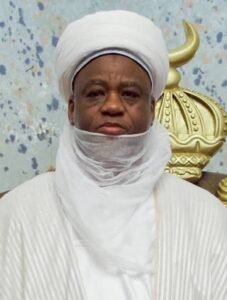Senators reject licensing private investigators in Nigeria, cite reason

ill seeking to regulate and provide legal backing for private investigators in the country on Wednesday at plenary failed to pass a second reading at the Senate.
The bill titled ‘A Bill for an Act to prescribe standard and conditions of licence for operation and practice of private investigators in the country’ was sponsored by Osita, Ngwu (PDP-Enugu).
The lawmakers expressed fear that the bill if passed, would empower private individuals to pry into the private lives of perceived opponents. Leading the debate on the bill earlier, Mr Ngwu said private investigators could be used in various capacities.
He said that while some investigators specialised in tracing, others specialised in technical surveillance countermeasures. He said this involved locating and dealing with unwanted forms of electronic surveillance, like a bugged boardroom for industrial espionage purposes.
He listed the bill’s objectives as fraud prevention, detection, assessment, and resolution, as well as corporate fraud and risk management services. According to him, others are insurance fraud and claims investigation, aviation accident and loss investigation. Others are marine loss investigation, occupational health and safety incident investigation, witness location and bail bond defaulters.
Victor Umeh (LP-Anambra), who supported the bill, said it was a well-thought-out bill to fill the gaps left by the EFCC, ICPC, and other security agencies.
“When due diligence is applied, a lot of high-profile crimes will no longer be swept under the carpet,” he said.
Neda Imaseun said, “It’s the bill was the best practice (all) over the world.”
However, Adams Oshiomhole (APC-Edo) vehemently opposed the bill, saying, “It will be wrong to create an open-ended body” that will have the power to pry into people’s privacy.
He added, ”It could be a willing tool in the hands of political enemies.”
Aminu Iya Abbas (PDP-Adamawa) said the bill, if passed, would be a duplication of efforts and functions of security agencies in the country.
Titus Zam (APC-Benue) said, “I rise to express my strong reservation as the country has enough investigators. Our country is divided on ethnic, religious and political lines, and your enemies can use your opponents against you.”
Salihu Mustapha (APC-Kwara), opposing the bill, said the developed countries like the U.S. and UK, where private investigators were operating, were currently experiencing a debate on the use of private investigators who pry into private lives.
He said certain conditions like a national forensic institute needed to be in place” to streamline evidence being of a private investigator.
After the debate, Senate President Godswill Akpabio sought the sponsor’s opinion on whether to put the bill to the vote or withdraw it by himself for further legislative consultations and action.
Mr Ngwu opted to withdraw the bill.
(NAN)





